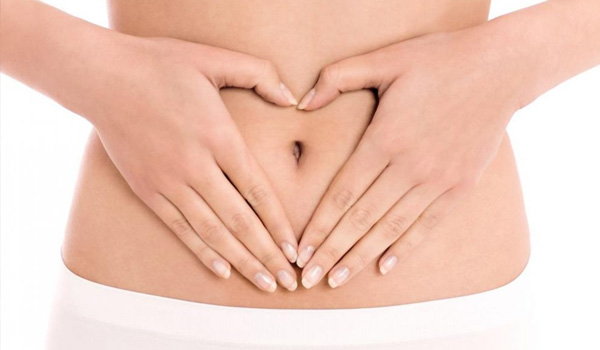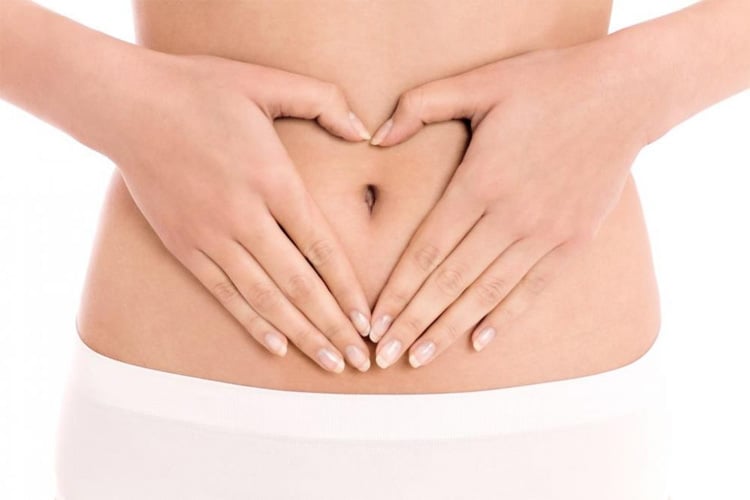
Are you wondering why your belly button is smelling
A smelly belly button can be a cause of poor hygiene or an infection. As belly button is a moist area, it is therefore more susceptible to bacterial growth. This can also lead to several infections. Once infected, the belly button tends to produce a foul smell and discharge.
Here are few of the common causes of belly button smell:
Causes
1. Yeast infection
Yeast infection is also known as fungal infection and can affect both adults and children. A few of the common signs of yeast infection is unpleasant odor that does not subside even after cleaning, yellow discharge, and pain accompanied with liquid discharge.
2. Bacterial infection
Bacterial infections can commonly occur in people with deep belly buttons. Lack of proper cleaning and hygiene can lead to bacterial growth and worsen condition. One can clean their belly button with antibacterial soap to prevent bacterial growth.
3. After surgery
Belly button can become smelly even after a surgery because most surgical procedures leave scabs during healing period. Additionally, belly button can get infected after surgeries such as tummy tuck and laparoscopy.
[sc:mediad]
4. During pregnancy or Period
Several women experience pain or four smells near navel area during pregnancy stage. This can occur due to increased metabolism in the body during pregnancy, which can lead to excessive sweating and bacterial buildup. Extra care should be taken to keep the belly button clean and dry.
5. Patent urachus
An unpleasant smell of belly button hole is usually caused by patent urachus. A few of the symptoms of patent urachus include foul smelling discharge, pain while urinating, and UTI.
6. Navel piercing
Navel piercing is one of the common causes of a smelly belly button. Its symptoms are unpleasant smell and yellow discharge.
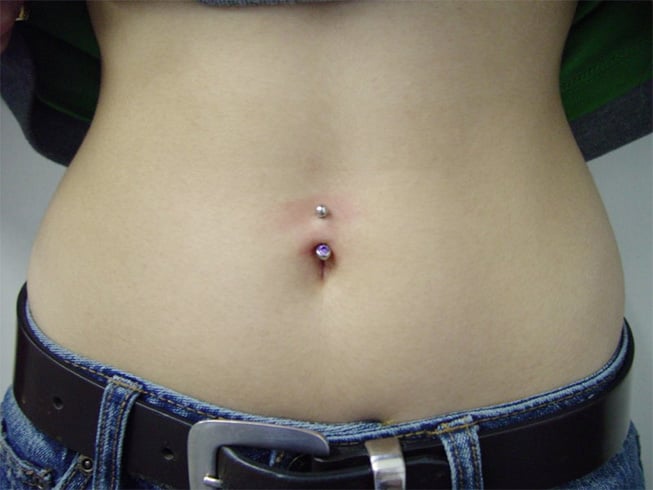
7. Diabetes
Diabetes can often lead to smelly belly button. This condition can worsen the navel health leading to foul discharge.
8. UV light exposure
Exposure to sunlight can increase belly button infection. The light can damage your skin, and thereby lead to an infection.
9. Urachal abnormalities
Urachal abnormalities can lead to a smelly belly button often accompanied by a discharge or moisture around navel area.
10. Sebaceous cysts
Sebaceous cysts form around your belly button. It can often resemble a pimple in the center of the cysts. If these cysts remain infected, then a yellow and foul smelling discharge occurs.
How To Get Rid Of Belly Button Smell?
Here are a few ways to stave off the foul smell.
Take a look:
Rubbing alcohol has antiseptic and acidic properties that can sterilize infected area and prevent skin infection. It can also be an effective treatment for skin irritation and pain.
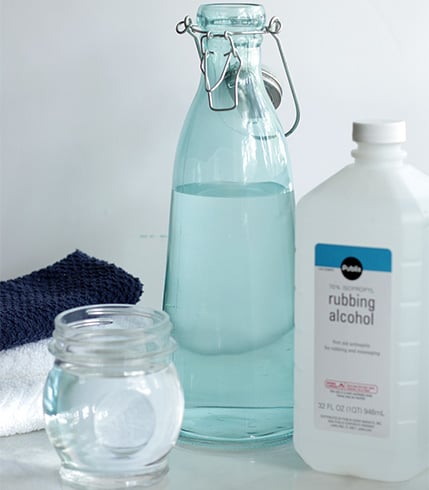
How frequent to use:
Reapply the solution thrice a day for few days until the smell subsides.
Tip: You might need more than one cotton ball to clean the entire belly button area.
2. Hydrogen peroxide
What you need?
- Hydrogen peroxide
- Cotton ball
How to do:
- Dip a cotton ball with hydrogen peroxide.
- Clean the area gently.
How it works:
Hydrogen peroxide helps to remove pus from infected belly button as the pus causes infection and aid in cleaning belly button.
How frequent to use:
Try it twice a day until the infection subsides.
Tip: The hydrogen peroxide treatment can only be used for draining the pus or cleaning the infected area. Do not make use of it after the infection is clear.
3. Tea tree oil
What you need?
- 4-5 drops of tea tree oil
- One tsp of olive or coconut oil
- Cotton ball
- Cloth
How to do:
- Mix tea tree oil and olive or coconut oil in a bowl.
- Dip a cotton ball into the mixture.
- Keep the soaked cotton over belly button for 10 minutes.
- Wipe off with a clean cloth
How it works:
Tea tree oil is a natural remedy for belly button infection, commonly caused by yeast or bacterial infection. This essential oil contains antifungal, antiseptic, and antibacterial properties.

How frequent to use:
Follow this procedure two to three times a day until the belly button heals.
Tip: If the belly button infection is caused due to bacteria, then this remedy can effectively bring it under control.
4. Hibiclens
What you need?
- Hibiclens
- Cotton swab
- Bowl
How to do:
- Pour a little amount of hibiclens solution into a bowl.
- Soak a cotton swab for few minutes.
- Clean the infected area using the cotton swab.
How it works:
Hibiclens solution can kill germs causing skin infection for up to six hours. It is an antiseptic skin cleanser for cleaning belly button.
How frequent to use:
Follow up with this remedy few times a day to kill the germs.
5. Warm compress
What you need?
- Washcloth
- Warm water
- Bowl
How to do:
- Dip a washcloth into a bowl of warm water.
- Squeeze out excess water.
- Press the warm cloth over belly button for few minutes.
How it works:
A warm compress can relieve any kind of pain or discomfort associated with belly button infection. The heat helps to ease the pain and speed up healing process.
How frequent to use:
Repeat this procedure several times a day for best effects.
Tip: You can also try a warm bath to get similar effects.
6. Saline solution
What you need?
- One tsp salt
- Cup of warm water
- Cotton ball
How to do:
- Dissolve one tsp of salt in a glass of warm water.
- Dip a cotton ball into the warm liquid.
- Squeeze out the excess.
How it works:
Warm salt water can be used for treating belly button infection. It can enhance blood flow and absorb moisture for healing purpose. The salt water can also work as a disinfectant to slow down infection growth.
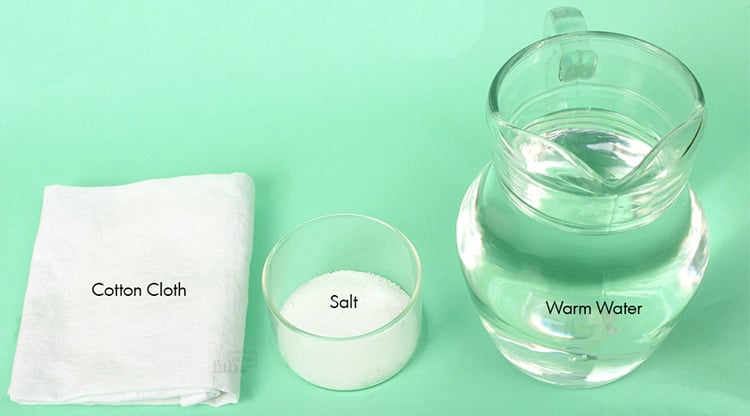
How frequent to use:
Try this solution twice a day for the best effect.
Tip: For best effects, try the saline solution and pat the area dry followed by water based antibacterial cream.
Prevention & Precautions
Here are few additional tips that one can follow for treating a belly button infection:

- Avoid scratching the infected area as it can worsen the infection.
- Refrain from swimming for several days until the infection fully heals. The chlorine present in swimming pools can worsen the infection.
- Do not make use of cloth to clean the infected area. Always make use of a cotton ball or swab.
- Do not touch the infected area without cleaning your hands.
- Include foods in your diet that are rich in Vitamin C, antioxidants, and zinc.
- Do not put pressure on your belly button when you are sleeping. Lie down flat on your back and wear loose clothing.
- Keep a constant check on your blood sugar levels. If you are overweight, then reduce your sugar intake to prevent yeast infections.
- If you have any piercing on your naval area, then take proper care and maintain good hygiene.
- You should reduce your alcohol intake as it can lead to liver damage, cirrhosis, and even portal hypertension.
- If you do not see any improvement, then you should check in with a doctor immediately.
When to consult a doctor?
You should consult a doctor if you notice bleeding in and around your belly button area. Other than that, you should also see a doctor immediately if you notice any of these symptoms:
- Foul smelly discharge from your belly button
- Swelling, redness, and warmth around bellybutton piercing
- Lump near or around bellybutton
Bellybutton infections are preventable and treatable. You can visit a doctor as soon as you notice any of these symptoms. An early diagnosis can help to prevent an infection from spreading.
Images Source: pinterest
